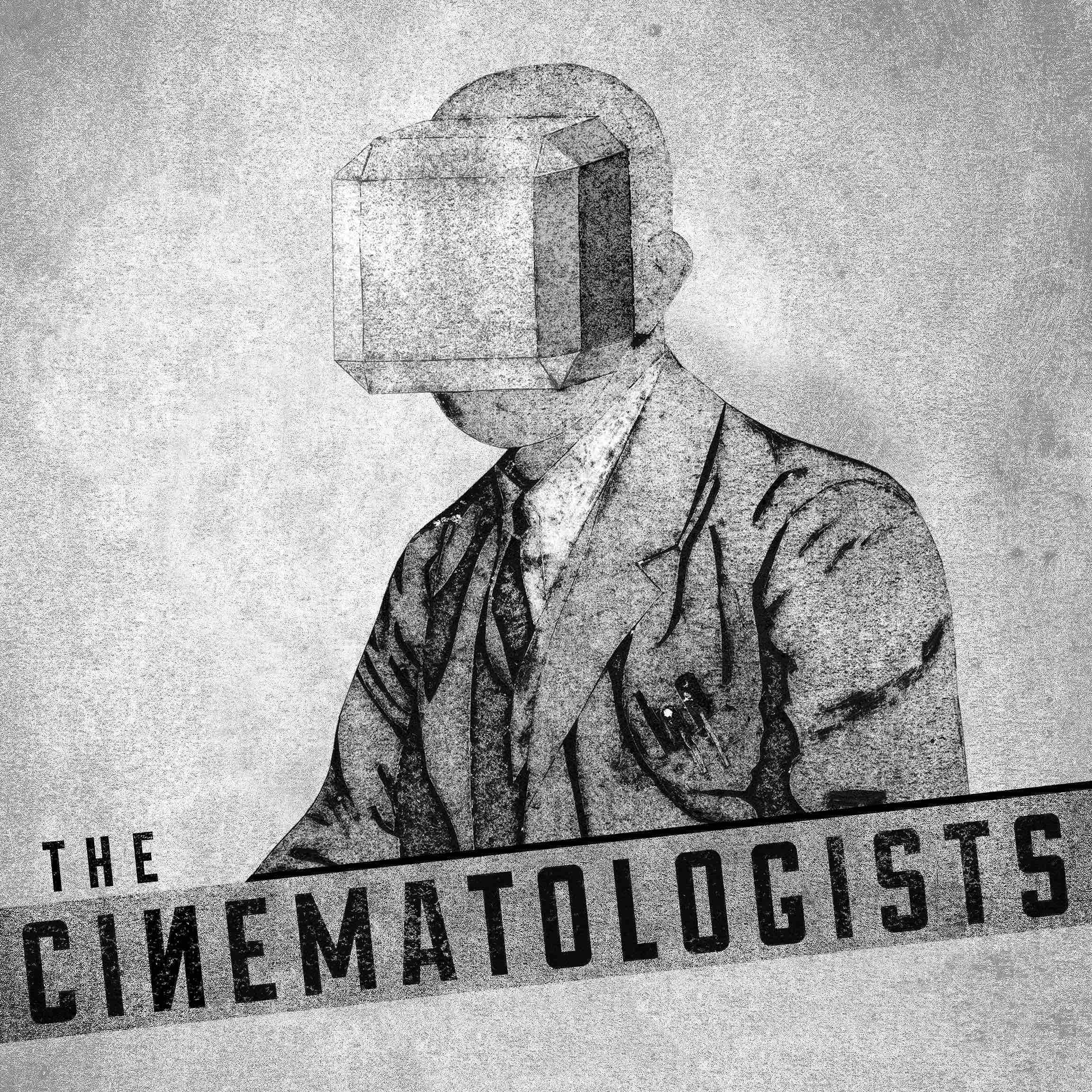Episodes
Episodes
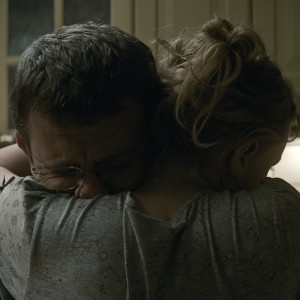


Friday Mar 12, 2021
Romanian Cinema (w/Film Critic Andrei Gorzo)
Friday Mar 12, 2021
Friday Mar 12, 2021
In this episode we talk to top Bucharest film critic and academic Andrei Gorzo about the aesthetics, history and political context of Romanian cinema. Andrei outlines how the fall of Nicolae Ceaușescu in 1989 effected a liberalisation of society, culture and the arts. But it not would be for another 10 years until the Romanian New Wave and directors like Cristi Puiu, Cornelie Porumboiu and Cristian Mungiu would spark a distinctive cinema emerge that would attained international acclaim. Andrei's research and writing is anchored by an encyclopaedic knowledge of international cinema and the connections between the emergence of the New Wave, Romania's communist history, the post-war European canon and popular cinema of the West. In this wide-ranging discussion, Andrei outlines the adoption of specific kind of realism, the problem of the concept of a national cinema with regards to Romania, the varying responses to the post-communist malaise, and the complex depiction of the uncertain relationship between the state and capitalism.
Also in this episode, Neil reviews the soon to be released BFI Blu-Ray of Romeo is Bleeding, directed by Peter Medak, and starring Gary Oldman and Lena Olin.
You can listen to The Cinematologists for free, wherever you listen to podcasts: click here to follow.
We also produce an extensive monthly newsletter and bonus/extended content that is available on our Patreon page: https://www.patreon.com/cinematologists. You can become a member for only $2.50.
We also really appreciate any reviews you might write about the show (please send us what you have written and we'll mention it) and sharing on Social Media is the lifeblood of the podcast so please do that if you enjoy the show.
Music Credits:
‘Theme from The Cinematologists’
Written and produced by Gwenno Saunders. Mixed by Rhys Edwards. Drums, bass & guitar by Rhys Edwards. All synths by Gwenno Saunders. Published by Downtown Music Publishing.
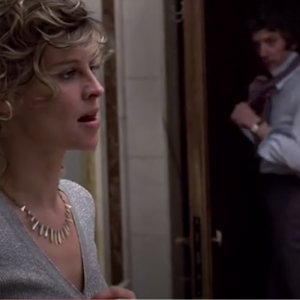


Friday Feb 26, 2021
Sex and the Cinema (w/Film Critic Beatrice Loayza)
Friday Feb 26, 2021
Friday Feb 26, 2021
In this episode, we take on the thorny issue of sex and cinema but thankfully we had the extremely insightful film critic Beatrice Loayza to help is navigate the many strands of this subject. Beatrice has bylines in Sight & Sound, LA review of Book, Reverse Shot and Mubi notebook, but it was her recent piece in the Guardian - Some sex scenes are gratuitous, but a good one can electrify a film - that was the trigger for this conversation. Dario and Beatrice discuss the polarised debate around how sex scenes should be deployed, i.e. in the service of the plot, or for their aesthetic value in their own right. The conversation examines how the implied notion of the male gaze defines so much conversation about sex on screen, the lack of actual sexual representation in mainstream cinema, how blockbusters are particularly sex-less, the influence of the internet and the accessibility of pornography, the changing attitudes to hetero and queer sexual representation, and of course, what makes a 'good' sex scene. All of this framed through a context of continuing scrutiny of the film industry and its practices when in comes to shooting sex scenes, and the history of abuse that has been brought much more to the forefront in recent years. Dario and Neil go on to discuss the tricky subject of male power dynamics acknowledging and unpacking their own roles as straight white male viewers.
The episode also features a review A Nightmare Wakes released by horror distributors du jour Shudder, directed by Nora Unkel and starring the excellent Alix Wilton Regan. It's a fabulist, hallucinatory imagining of Mary Shelley's life, as her traumatic pregnancy and birth becoming fuel for the iconic literary monster she would give to the world.
RS Benedict - Everyone is Beautiful and No One is Horny
You can also subscribe to The Cinematologists on:
Apple Podcasts
Spotify
Google Podcasts
Podchaser
We produce an extensive monthly newsletter and bonus/extended content that is available on our Patreon page: https://www.patreon.com/cinematologists. You can become a member for only $2.50.
We also really appreciate any reviews you might write about the show (please send us what you have written and we'll mention it) and sharing on Social Media is the lifeblood of the podcast so please do that if you enjoy the show.
Music Credits:
‘Theme from The Cinematologists’
Written and produced by Gwenno Saunders. Mixed by Rhys Edwards. Drums, bass & guitar by Rhys Edwards. All synths by Gwenno Saunders. Published by Downtown Music Publishing.
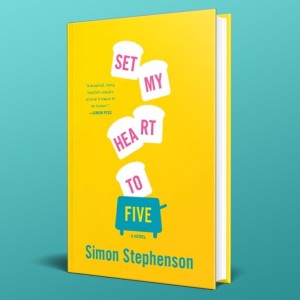


Friday Feb 12, 2021
Simon Stephenson (Set My Heart To Five)
Friday Feb 12, 2021
Friday Feb 12, 2021
In the latest episode, Neil and Dario are drawn back to one of their favourite topics to talk about, Sci-Fi, albeit in a slightly different context. Neil talks to author and screenwriter Simon Stephenson about his acclaimed debut novel Set My Heart To Five, which tells the story of Jared - a bot who develops feelings. Simon is also adapting his book into a screenplay, with Edgar Wright attached to direct.
Around this conversation, Neil and Dario talk about a host of topics including the legacy of classic Sci-Fi cinema and in particular representations of artificial life/intelligence, Hollywood cinema of the 80s and 90s as a classic era, the differences between reading and watching Sci-Fi, the adaptation process and why Kevin Costner is great. Though for a full Costner love-in you will need to subscribe to the Patreon bonus episode that accompanies this main episode. (www.patreon.com/cinematologists)
Also as part of the episode, the hosts wax lyrical about their love for MUBI to coincide with their partnership for the release of Dea Kulumbegashvili’s Beginning - https://mubi.com/promos/thecinematologists - and on the occasion of MUBI’s 14th birthday, for which they are giving away a free day of movies on February 14th - https://mubi.com/ - a gesture you’ve just got to love.
Thank you to Simon for a wonderful chat. Buy his brilliant novel here (or wherever ethical that you buy your books), it’s out now in paperback.
Links to other material discussed in episode 115:
Into the Blue: Transposing the Frame in Derek Jarman’s Blue by Edwin Miles for Bright Wall/Dark Room.
The video essays of Ian Garwood on Vimeo
You can also subscribe to The Cinematologists on:
Apple Podcasts
Spotify
Google Podcasts
Podchaser
We produce an extensive monthly newsletter and bonus/extended content that is available on our Patreon page: https://www.patreon.com/cinematologists. You can become a member for only $2.50.
We also really appreciate any reviews you might write about the show (please send us what you have written and we'll mention it) and sharing on Social Media is the lifeblood of the podcast so please do that if you enjoy the show.
Music Credits:
‘Theme from The Cinematologists’
Written and produced by Gwenno Saunders. Mixed by Rhys Edwards. Drums, bass & guitar by Rhys Edwards. All synths by Gwenno Saunders. Published by Downtown Music Publishing.



Saturday Jan 30, 2021
Concert Films (Stop Making Sense and American Utopia)
Saturday Jan 30, 2021
Saturday Jan 30, 2021
To kick off season 13 of the podcast, Neil and Dario get into the wonder of Talking Heads' and Jonathan Demme's Stop Making Sense (1984) and concert films in general. They touch on the performativity of music documentaries and what makes Sense such a seminal work. They also talk about its spiritual successor, David Byrne and Spike Lee's American Utopia from 2020.
Elsewhere there is a chat about Richard Fleischer's lean and nasty Mob pulp movie The Don Is Dead (1973), recently released by Masters of Cinema, our first ever release partnership with MUBI for Dea Kulumbegasvhvili's Beginning (2020) and the pair are joined by a fabulous mystery guest to talk about live performance, Brexit, the pandemic and 1988's My Neighbor Totoro.
Please excuse the odd electroglitch on our Mystery Guest's recording.
Show Notes
Pauline Kael on Stop Making Sense
Neil on Stop Making Sense for the Quietus
Devika Girish on Beginning
You can also subscribe to The Cinematologists on:
Apple Podcasts
Spotify
Google Podcasts
Podchaser
We produce an extensive monthly newsletter and bonus/extended content that is available on our Patreon page: https://www.patreon.com/cinematologists. You can become a member for only $2.50.
We also really appreciate any reviews you might write about the show (please send us what you have written and we'll mention it) and sharing on Social Media is the lifeblood of the podcast so please do that if you enjoy the show.
Music Credits
‘Theme from The Cinematologists’
Written and produced by Gwenno Saunders. Mixed by Rhys Edwards. Drums, bass & guitar by Rhys Edwards. All synths by Gwenno Saunders. Published by Downtown Music Publishing.
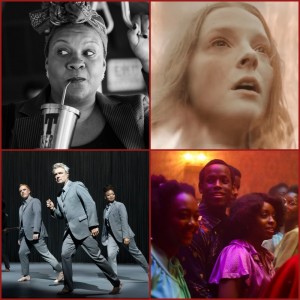


Monday Jan 04, 2021
So Long 2020
Monday Jan 04, 2021
Monday Jan 04, 2021
In this final episode of Season 12 Neil and Dario chat, casually, about some of their favourite films of the past year. They chose five each to give a special focus to and elsewhere in the episode there are some honourable mentions and also shout out to the pair's favourite film podcasts of the last 12 months.
It's been a helluva year. No need to go over it again. But, The Cinematologists hope you are doing ok and thank you for your continued support of this podcast. Without the listeners and the community around the show that you have helped build, Neil and Dario's 2020 would have been much worse.
You can also subscribe to The Cinematologists on:
Apple Podcasts
Spotify
Google Podcasts
Podchaser
We produce an extensive monthly newsletter and bonus/entended content that is available on our Patreon page: https://www.patreon.com/cinematologists. You can become a member for only $2.50.
We also really appreciate any reviews you might write about the show (please send us what you have written and we'll mention it) and sharing on Social Media is the lifeblood of the podcast so please do that if you enjoy the show.
Music Credits
‘Theme from The Cinematologists’
Written and produced by Gwenno Saunders. Mixed by Rhys Edwards. Drums, bass & guitar by Rhys Edwards. All synths by Gwenno Saunders. Published by Downtown Music Publishing.



Saturday Dec 19, 2020
The Cinema of Walter Murch (w/ Dir. Jon Lefkovitz)
Saturday Dec 19, 2020
Saturday Dec 19, 2020
Walter Murch is one of the seminal figures in American cinema in terms of defining film craft. His editing and sound design work, in many ways, provides the audio-visual architecture to the most influential films of New Hollywood and his collaboration with Francis Ford Coppola on The Conversation, The Godfather and Apocalypse Now would influence a generation of filmmakers to follow. Jon Lefkovitz's feature length audio-visual essay, draws upon a wealth public interviews, discussions and lectures by Murch which demonstrate how his technical craftsmanship is borne out of a deep philosophical understanding of cinema as an art form, and how we respond, cognitively and emotionally, to it. Dario discusses with Jon the labour of love in amalgamating the hours of audio with images that visually enhance and reflect Murch's ideas. This gives rise to many topics of conversation including: cinema as a sound as much as a visual medium, the role of the cinematographer in relation to the director, Murch's continued influence on cinema from analogue to the digital age, the difference between the craft and art of film, and the cold realities of working in the film industry when you are not the one with final creative control.
The film Sight and Sound: The Cinema of Walter Murch is free to view on Vimeo.
With the pandemic still wreaking havoc in all areas of life, Dario and Neil discuss the present and future of cinema particularly in light of Warner Bros. decision to put it all new releases onto the streaming service HBO Max at the same time as they go into cinemas.
Also under discussion are the recent viewings of David Fincher's ode to old Hollywood Mank, brutally honest and intriguingly subjective documentary Time (Garrett Bradley), highly entertaining Russian horror sci-fi but with a Hollywood sensibility Sputnik, and an even more terrifying socially conscious British horror from Remi Weeks: His House.
You can also subscribe to The Cinematologists on:
Apple Podcasts
Spotify
Google Podcasts
Podchaser
We produce an extensive monthly newsletter and bonus/entended content that is available on our Patreon page: https://www.patreon.com/cinematologists. You can become a member for only $2.50.
We also really appreciate any reviews you might write about the show (please send us what you have written and we'll mention it) and sharing on Social Media is the lifeblood of the podcast so please do that if you enjoy the show.
Music Credits
‘Theme from The Cinematologists’
Written and produced by Gwenno Saunders. Mixed by Rhys Edwards. Drums, bass & guitar by Rhys Edwards. All synths by Gwenno Saunders. Published by Downtown Music Publishing.
Transition music - P.O.V. - Composed and performed by Jon Lefkovitz https://www.youtube.com/watch?v=u90H1x3AJm4
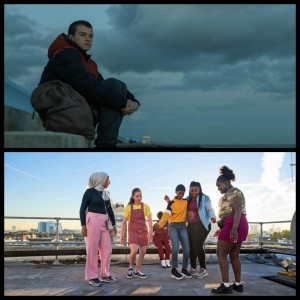


Wednesday Dec 02, 2020
British Social Realism Now! (w/Sarah Gavron & Henry Blake)
Wednesday Dec 02, 2020
Wednesday Dec 02, 2020
To coincide with the cinema release of the new drama County Lines, directed by one of today's guests Henry Blake, Neil and Dario discuss the form and legacies of that oft contested term 'social realism', asking if it has a place in today's British Cinema landscape and if recent releases such as Fyzal Boulifa's Lynn + Lucy and Mark Jenkin's Bait are evidence of a 'new wave'.
As well as Henry's interview with Neil, Dario talks with Sarah Gavron, director of one of the most acclaimed of the recent British 'social' dramas, Rocks, recently released in cinemas by Altitude Films and currently screening on Netflix.
Neil and Dario also wax lyrical on Steve McQueen's Lovers Rock and Neil confuses The Long Good Friday with The Long Goodbye.
Show Notes
Guy Lodge's Variety review of County Lines, mentioned by Dario on the show.
You can also subscribe to The Cinematologists on:
Apple Podcasts
Spotify
Google Podcasts
Podchaser
We produce an extensive monthly newsletter and bonus/entended content that is available on our Patreon page: https://www.patreon.com/cinematologists. You can become a member for only $2.50.
We also really appreciate any reviews you might write about the show (please send us what you have written and we'll mention it) and sharing on Social Media is the lifeblood of the podcast so please do that if you enjoy the show.
Music Credits
‘Theme from The Cinematologists’
Written and produced by Gwenno Saunders. Mixed by Rhys Edwards. Drums, bass & guitar by Rhys Edwards. All synths by Gwenno Saunders. Published by Downtown Music Publishing.
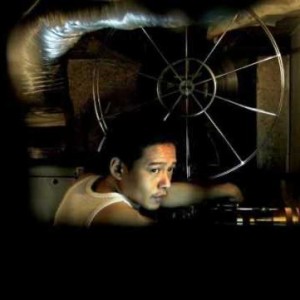


Monday Nov 23, 2020
(Repost) Ep 6 Goodbye Dragon Inn
Monday Nov 23, 2020
Monday Nov 23, 2020
To coincide with the Blu Ray (Arrow Films) release of Taiwanese director Tsai Ming-liang's wonderful elegy to the cinema Goodbye Dragon Inn, we are reposting one of our earliest episodes. Associated with what has come to be known a slow cinema, Tsai's subtly observed visual storytelling utilising long shots, intricate framing and editing but with minimalist dialogue, demands an a deep level of attention in the viewer. The empty, dilapidated movie palace at the centre of the story a metaphor for wider rejection of the auditorium experience. Recorded live at Falmouth University, the episode now feels like a bittersweet look back at a time when the status of cinema-going was undoubtedly a topic of lament, but not to the extent that it is now.
The episode also features an interview with academic Sarah Atkinson about her book, Beyond The Screen: Emerging Cinema and Engaging Audience - which presents an expanded conceptualization of cinema which encompasses the myriad ways film can be experienced in a digitally networked society where the auditorium is now just one location amongst many in which audiences can encounter and engage with films.
Listening back to the audio was also a reminder to us as to how far the podcast has come in the 5 years since we started. There is definitely a rough and ready feel about the audio, but we hope you 'appreciate' that.
Goodbye Dragon Inn is released on Blu Ray with Arrow Films on 23rd of November.
You can also subscribe to The Cinematologists on:
Apple Podcasts
Spotify
Google Podcasts
Podchaser
We produce an extensive monthly newsletter and bonus/entended content that is available on our Patreon page: https://www.patreon.com/cinematologists. You can become a member for only $2.50.
We also really appreciate any reviews you might write about the show (please send us what you have written and we'll mention it) and sharing on Social Media is the lifeblood of the podcast so please do that if you enjoy the show.
Music Credits:
‘Theme from The Cinematologists’
Written and produced by Gwenno Saunders. Mixed by Rhys Edwards. Drums, bass & guitar by Rhys Edwards. All synths by Gwenno Saunders. Published by Downtown Music Publishing.
